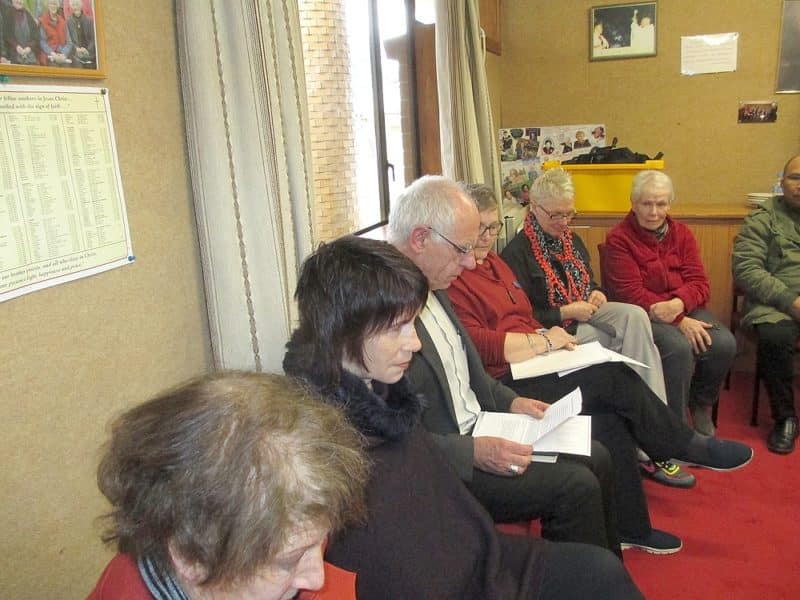The rural roadshow that Dunedin Bishop Michael Dooley and his diocesan pastoral council embarked on last year showed a Church saddened by the current realities of amalgamations and the pandemic, but also hopeful and willing to work to keep the faith alive.
The bishop, with members of the DPC, started in Riverton in July, and had the last consultation in Waikouati in November. In between, they also visited Mossburn, Gore, Cromwell and Kurow.
Those who accompanied Bishop Dooley on the trip included past chair of the DPC Tui Pasco, pastoral ministry coordinator Amy Armstrong, and DPC member Stephanie Swann.
A total of 113 people attended the six meetings. Most were in the 50-and-above age group and were Pakeha.
Ms Swann, who organised the meetings, said she was struck by the number of people who attended.
“When we first set up these meetings, we thought we might get 6-8 people. This has demonstrated there was a desire for something,” she said.
She was also touched by “the depth and variety of emotions expressed, especially around church closures, even though they understand the practicality of the decisions made”.
“The sense of loss, not just of the church, but also their community, was still very raw for some,” she observed.
The team recently released the results of the roadshow, which was done ahead of Pope Francis’ call for a synod, the process for which starts with a diocesan phase.
“While these meetings were held just before the synod process started, they have given us a great insight to our rural communities and their needs,” Ms Swann said.
She said that, while each parish is unique, there were several general issues mentioned at all the meetings.
“These included ageing parish populations and dwindling numbers,” she said.
She said that the rest of the discussions could be categorized into three topics: Pastoral/Liturgy, Youth, and Finance/Buildings.
For Pastoral/Liturgy, there was a realisation that the community or parish needs to take responsibility for formation and not be too reliant on priests. The report said that some people feel they are getting too old to lead “Service of the Word”, and that a succession plan needs to be in place to ensure that people “do not get worn out”.
The meetings also highlighted the need to attract young people back to the Church by making the liturgy and music more relevant to the youth. Some suggested that there should be a plan from the diocese to assist parents and children who are not in Catholic schools.
Finances are also a worry, as it is getting more difficult to maintain older buildings due to lack of funds.
“Localised issues were expressed in several meetings where there is an older congregation, falling numbers, and less money on the plate each week,” stated the report.
It was noted in the report that many of the communities were also reliant on tourists and visitors. “The impact of Covid-19 . . . on their towns has been significant,” the report said.
The report said that many people expressed sadness (at the loss of their parish communities), weariness, impatience, and frustration, but there was also hopefulness and gratitude.
The recommendations from the different communities included formation of lay ministers, working with the youth, a more collaborative ministry in the pastoral areas, as well as financial assistance for parish councils, particularly in the maintenance of their buildings.
Ms Swann said this process will be continued this year.
“We were very well received, and it was appreciated that we had taken the time to come out to them, and we were just there to hear how we could assist them in any way. It was a listening time for us, and a time of insightful sharing for all those who attended,” she said.

As a Gen-X this is curious to experience because as s a teen and 20-something we were told that we didn’t need to attend Mass, didn’t really need priests, the laity would do it all, that LPPC and lay-leaders were the future etc. However, now there is sorrow and the managed decline- it’s my generation and our children that will actually pay the bill in the next 10-20 years, yet as the reporter states, there were no Gen-X at the meeting. Why?